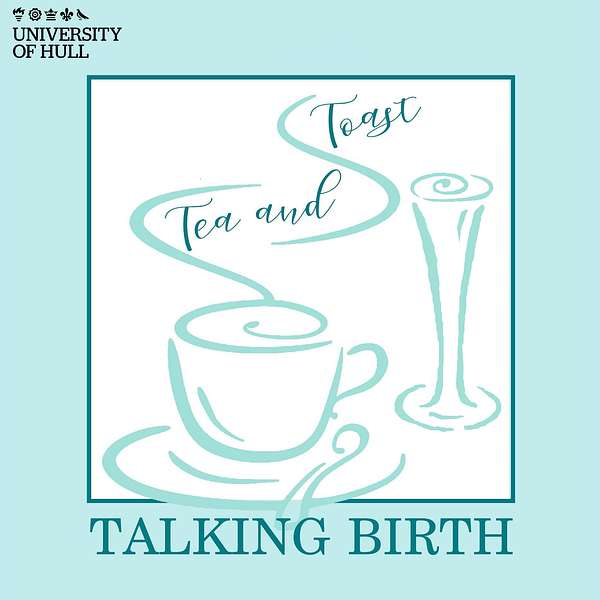
Tea & Toast: Talking Birth
This podcast aims to discuss and muse a different birth topic every month, with our hosts, who collectively have over 80 years of midwifery experience. For some episodes we will be inviting special guests to contribute towards our conversation.
We do not intend any of our discussions to act as medical advice, and all of our considerations are merely our own thoughts and feelings on that particular subject, utilising our collective experience and knowledge. Our aim is to bring together the wider community of birth, combining clinical experience with the felt experience in a hope to demystify pregnancy and birth, and share information and evidence.
Please visit our Instagram TeaandToastTalkingBirth or Tweet us @birth_tea with your thoughts, comments or suggestions for future shows.
Title music by Rojj from Fugue
Supported by The University of Hull
Tea & Toast: Talking Birth
Episode 6: Alternative therapies in maternity care
Episode 6 of the Tea & Toast podcast sees the team considering the use of complementary and alternative medicine and therapies in pregnancy and birth. Joined by midwifery lecturer and researcher Dr. Catriona Jones, they discuss why women might choose to use complementary therapies, have a look at some of the issues around evidence and contemplate the role of the midwife in this area.
References
Dekker, R. (2018) Aromatherapy during labor for pain relief. Evidence Based Birth [blog post] https://evidencebasedbirth.com/aromatherapy-for-pain-relief-during-labor/
Hall HG. Griffiths DL. McKenna LG (2011) “The use of complementary and alternative medicine by pregnant women: a literature review.” Midwifery 27(6):817-24
Jones C, Marsh J (2015) Complementary and alternative medicines applied to maternity care. In Fundamentals in Midwifery.
Jones C. (2012) Complementary and alternative medicine in the maternity setting10, British Journal of Midwifery, Vol 20, No 6, pp 409 – 418.
Jones, C. (2011) The efficacy of lavender oil on perineal trauma: A review of the evidence.11 Complementary Therapies in Clinical Practice (in press), Vol 17 (4), pp 215 – 220.
Jones, C. (2009) Safety of lavender oil in the treatment of perineal trauma12. British Journal of Midwifery, 17 (9), 567–570
NICE (2019) Antenatal care for uncomplicated pregnancies. Available from: https://www.nice.org.uk/guidance/cg62/chapter/1-guidance#management-of-common-symptoms-of-pregnancy
Royal College of Midwives (2017) Position Statement Complementary Therapies and Natural Remedies. Available from:
https://www.rcm.org.uk/media/2304/complementary-therapies-and-natural-remedies.pdf
Smith CA, Collins CT, Levett KM, Armour M, Dahlen HG, Tan AL, Mesgarpour B. Acupuncture or acupressure for pain management during labour. Cochrane Database of Systematic Reviews 2020, Issue 2. Art. No.: CD009232. DOI: 10.1002/14651858.CD009232.pub2. Accessed 11 January 2021.
Smith CA, Collins CT, Crowther CA. Aromatherapy for pain management in labour. Cochrane Database of Systematic Reviews 2011, Issue 7. Art. No.: CD009215. DOI: 10.1002/14651858.CD009215. Accessed 11 January 2021.
Tiran, D. (2018) Complementary Therapies in Maternity Care: an evidence based approach. London: Singing Dragon